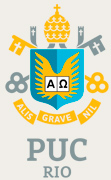Vol. 35, Nº 2, 2013
Post-hegemonic Regionalism and Sovereignty in Latin America: Optimists,Skeptics, and an Emerging Research Agenda
Thomas Legler

Abstract
A scholarly debate is emerging on how recent regional trends in Latin America and South America have impacted the meanings and practices of sovereignty. This debate pits two groups engaged in regionalist analysis against each other: the optimists and the skeptics. Optimists argue that recent changes in regionalism are having a transformative impact on sovereignty. Skeptics acknowledge that changes in regionalism have occurred, but that they have been accompanied by persistent and traditional sovereignty meanings and practices. The article employs a tripartite conception of sovereignty regime—sovereign, space, and authority—to sketch the parameters of the debate. Given the recent origins of ALBA, CELAC, and UNASUR, as well as the post-hegemonic regionalism which they reflect and promote, this debate can only be resolved through ambitious qualitative empirical research, especially in South America, the regional experience upon which many of the contending claims are made.
Such a research agenda on the regionalism-sovereignty nexus has both significant theoretical and practical implications for understanding Latin America’s and South America’s unique regional, institutional, and sovereignty patterns, as well as the limits and possibilities for regional governance.
Keywords: Regionalism – Sovereignty – Regional Governance – Latin America – South América
 Instituto de Relações Internacionais
Instituto de Relações InternacionaisRua Marquês de São Vicente, 225 - Vila dos Diretórios, Casa 20, Gávea - Rio de Janeiro - RJ, Brasil
Tel/Fax: +55 21 3527-1557 3527-1558 3527-1560


